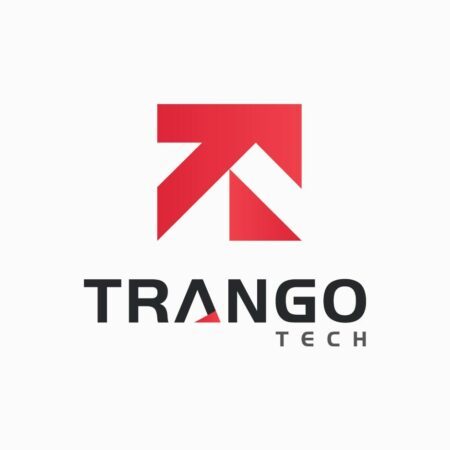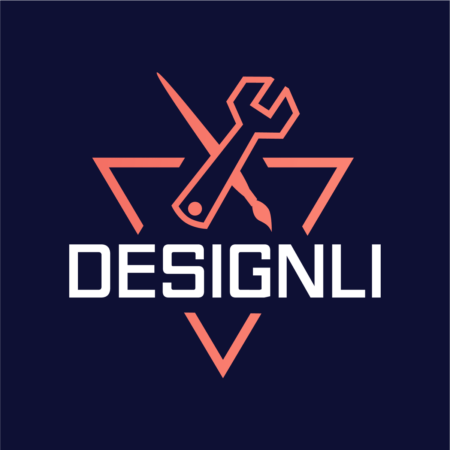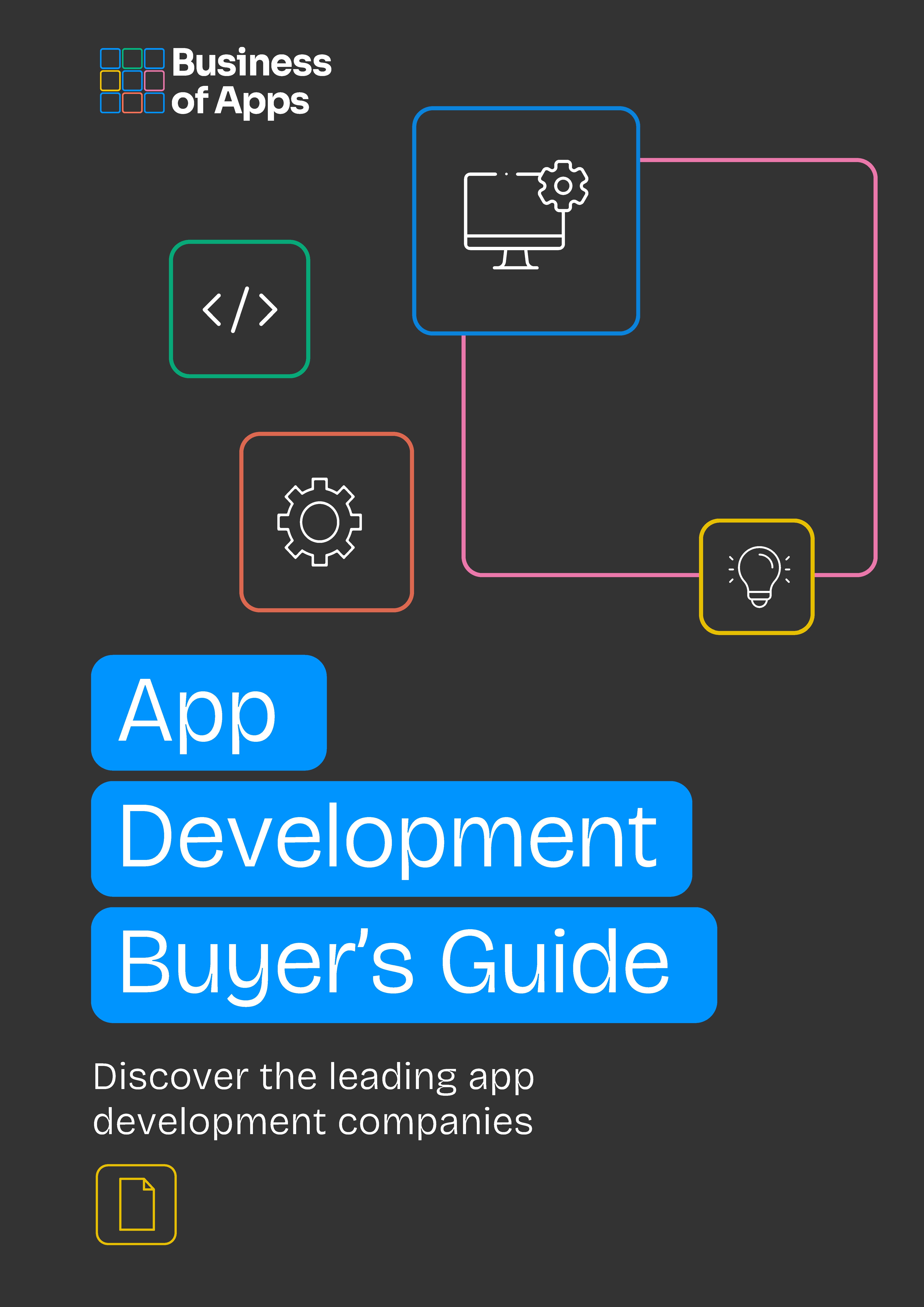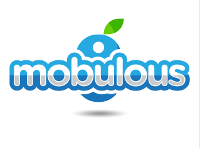The best entertainment app development services, how much they cost, top app development features, and how you stand to benefit from using app development companies. This guide will cover them all.
What is entertainment app development?
Entertainment app developer example
 Source: MindInventory
Source: MindInventory
The best entertainment app developers
Entertainment app developers are specialized software developers who design, build, and maintain mobile and web apps that deliver entertainment experiences.
These apps cater to various forms of digital content, such as music, video, gaming, live streaming, and interactive media, providing users with enjoyable and engaging experiences.
We’ve listed the best entertainment app developers below.
1. Designli

Designli is a software development firm that offers a comprehensive range of services, including UX design, mobile app development, web app and cross-platform development. Their approach focuses on delivering high-quality, user-friendly solutions.
Designli is known for creating tailored digital solutions, including entertainment apps emphasizing user engagement and functionality. A notable example of their work is Luvtalk, a relationship coaching app designed to enhance communication and personal growth through both entertainment and gamification.
Overview
Designli was founded in 2013 by Joshua Tucker and Keith Shields. The company is based in Greenville, South Carolina, and provides design and development services, particularly for custom entertainment mobile and web apps.
Services
Designli provides its customers with the following services:
- Builds entertainment apps that work across multiple platforms, ensuring broad accessibility and functionality
- Offers design services to craft visually appealing user interfaces
- Helps clients define their product goals, target users, and market strategies
2. Trango Tech

Trango Tech is a tech services and entertainment app development company aimed at helping businesses enhance their digital presence, streamline operations, and innovate their products.
Trango Tech identified a gap in the market for a next-generation streaming app that would not only offer video-on-demand but also integrate social and gamification elements. The company set out to develop a platform that combined movie streaming, live interactions, and social sharing to provide users with a highly engaging entertainment experience.
The VibeBox app achieved a 60% conversion rate from free trials to paid subscriptions, and users spent an average of 2.5 hours per day on the app.
Overview
Trango Tech was founded in 2017. The company was established to provide innovative tech solutions, particularly in the areas of mobile app development, web development, and IT consulting.
Since its founding, Trango Tech has worked with clients across various industries to help them build custom software solutions that meet their business needs.
Services
Trango Tech provides its customers with the following services:
- Integrates gamification into apps and sites to boost user engagement, whether through in-app achievements, leaderboards, or interactive experiences
- Develops software that enhances systems and helps with automation, integration, and data management
- Provides customized platforms to help businesses sell products online effectively
3. Slashdev.io

Slashdev.io is an entertainment app development company that connects businesses with top-tier remote software engineers. They offer flexible freelance contracts at competitive hourly rates, enabling companies to focus on their core competencies.
While most entertainment apps offer personalized recommendations and on-demand streaming, few cater to real-time community engagement during content consumption, particularly with niche content. SlashDev.io wants to bring people together while they consume content, allowing them to interact, participate in live events, and form lasting connections with creators and fellow viewers.
Overview
Slashdev.io was founded in 2019 by Michael Ballard and Patrich Söderström. Michael Ballard is the founder and CEO, bringing a background in software entrepreneurship and a passion for helping entrepreneurs.
Patrich Söderström co-founded the company, contributing to its mission of connecting businesses with top-tier software engineers worldwide. The company primarily works with SaaS, enterprise, and software product startups.
Services
Slashdev.io provides its customers with the following services:
- Creates entertainment mobile apps that boost engagement and reach
- Provides access to top-tier remote engineers to extend in-house teams
- Offers end-to-end solutions, helping businesses design, develop, and deploy scalable apps
4. 3 Sided Cube

3 Sided Cube is an entertainment app developer who specializes in creating impactful and innovative mobile apps.
Many entertainment and streaming services focus on passive viewing, but 3-Sided Cube wants to break the mould by creating apps where the content isn’t just something users watch but something they can influence and interact with at the same time.
The company plans to introduce AR and VR features, such as virtual concert experiences and interactive 3D environments for watching movies and events.
Overview
3 Sided Cube was founded in 2009. The company has focused on using tech to create products that drive social impact and innovation, helping organizations and causes achieve their goals.
They are known for their work on projects that aim to drive social change. For example, they developed the American Red Cross Blood Donor app and the Disaster Preparedness app, which have been instrumental in saving lives and providing critical support during emergencies.
Services
3 Sided Cube provides its customers with the following services:
- Conducts research to understand user needs, the competitive landscape, and industry trends to inform an entertainment app’s development
- Early-stage design processes that help visualize the app’s functionality and flow
- They work with clients to define the app’s purpose, target audience, and key features, ensuring the app aligns with business goals
5. Yeti

Yeti is a forward-thinking mobile app development agency focused on creating highly functional, scalable, and engaging apps. Today, Yeti stands as a leading Bluetooth app development company dedicated to unlocking the revolutionary capabilities of connected technology.
Yeti developed a series of innovative solutions that ensured Joy of Giving, an entertainment platform, delivered a seamless and engaging user experience while addressing the unique needs of the campaign.
The platform accommodated both on-premise and online participation, making it accessible to a broad audience and fostering a sense of involvement in the campaign.
Overview
Tony Scherba founded Yeti in 2015 and today acts as CEO of the company. Yeti stands as a leading IoT app development company dedicated to unlocking the capabilities of connected tech and redefining how the world engages with ordinary objects.
Specializing in both iOS and Android app development, Yeti’s team of expert developers, UI designers, and product strategists work collaboratively to deliver innovative apps that meet client expectations. Clients include Netflix, PlayStation (for Sony), and Google.
Services
Yeti provides its customers with the following services:
- Mobile entertainment app development with prototyping and product road mapping
- Digital product design with a focus on Bluetooth app development
- Continuous app monitoring, bug fixes, updates, and scaling solutions to ensure app success
6. Moburst

Moburst is an entertainment app developer and offers a range of services, including complete app store optimization and social media marketing. Moburst helps both app developers and publishers increase their app’s visibility and boost their user acquisition.
Bingo Blitz, a multiplayer bingo and slots app by Playtika, is monetized through in-app purchases. Moburst’s mission was to increase visibility, conversion rates, organic download rates and cumulative traffic scores in the US Apple app store.
The results saw Bingo Blitz experience a 41% increase in cumulative traffic, a 72% increase in the number of keywords, and the number of users awarding Bingo Blitz with a 5-star rating across app stores grew by 57%.
Overview
Moburst was founded in 2013 by Gilad Bechar. It serves startups and brands such as Google, Samsung, Reddit, Uber, Dunkin, YouTube, Bumble, Robinhood, and Playtika. Moburst has offices in New York City, San Francisco, London, and Tel Aviv.
With a focus on user experience, innovation, and measurable results, Moburst helps brands turn their app ideas into successful, user-centric products while scaling them effectively in the competitive app market.
Services
Moburst provides its customers with the following services:
- Establishes consistent visual elements and patterns to maintain brand identity across the app and other platforms
- Optimizes your app’s presence on app stores to improve visibility and increase download rates. This includes keyword optimization
- Analyzing competitors and industry trends to understand market positioning and identify areas for differentiation
7. Promatics

Promatics is a digital solutions company that specializes in providing web development, mobile app development, and digital marketing services to businesses on a global basis. They focus on delivering innovative and high-quality software solutions, helping clients build their online presence, improve customer engagement, and scale their businesses.
When designing entertainment apps, Promatics follows an Agile development process, working in sprints to ensure an app can be developed efficiently while allowing room for adjustments based on user feedback.
Promatics developed a unique video compressor app for a client to disrupt the industry. The app was commissioned by RaySaar Technologies to cater to the growing need for efficient video compression tools. The result was an app listed as a top choice for video compression across Android devices.
Overview
Promatics Technologies is a certified mobile app development company based in India. With over five offices across the globe, Promatics has been delivering native as well as hybrid apps for its clients for many years.
Clients include Google, DHL, Airtel, HP and Michigan State University.
Services
Promatics provides its customers with the following services:
- Creates prototypes and wireframes to test ideas and concepts before entertainment app development
- Crafts custom Android apps for various devices with a focus on performance and user experience
- Focuses on the usability, accessibility, and overall experience of the app or website
What is an example of an entertainment app?
Entertainment apps come in many different forms, with both mobile and web platforms catering to different needs. The key apps typically include the following:
- Web series/film: These apps provide on-demand access to movies, TV shows, documentaries, and original series, allowing users to watch content at their convenience. They often offer features like offline downloads, multi-language subtitles, and personalized recommendations based on viewing history.
- Music: Music apps allow users to stream, download, and discover songs, albums, and playlists from various artists and genres. Many include features like curated playlists, offline listening, and algorithm-driven song recommendations tailored to individual tastes.
- Games: Video gaming apps encompass a variety of genres, from casual puzzle games to action-packed multiplayer experiences, catering to different levels of player engagement. They often include social elements such as leaderboards, multiplayer modes, and in-game purchases.
- News: News apps deliver up-to-date articles, live reports, and multimedia content covering current events, politics, sports, entertainment, and more. Users can customize their feeds to focus on specific topics or outlets (and often receive notifications for breaking news).
- Other Media: Other media apps cover a few different types, such as podcasts, audiobooks, and comics, as well as user-generated content, such as blogs or vlogs. These apps typically offer features like offline access, bookmarking, and personalized recommendations based on user preferences.
Entertainment app developer example
 Source: BuildFire
Source: BuildFire
Finally, here’s a quick overview of the different genres of entertainment apps, indicating whether they are typically business-to-consumer (known as B2C) or business-to-business (known as B2B):
1. Web Series/film
These streaming services are primarily B2C, as they cater directly to individual consumers who subscribe to watch movies, TV shows, and web series.
Some platforms also have B2B components, such as licensing content to other companies, partnering with production houses, or offering streaming services to hotels and airlines.
2. Music
Music streaming apps are mainly B2C, providing individual users with access to a vast library of songs, playlists, and podcasts.
B2B components include licensing music for commercial use (retail stores, gyms, or radio stations) or providing background music services to businesses.
3. Games
Most gaming apps are B2C, targeting individual players who download and play the games, often with in-app purchases or subscription models.
B2B elements can include game development services for other companies, partnerships for co-branded content, or gaming platforms that enable businesses to use what’s known as ‘gamification’.
4. News
News apps are typically B2C, delivering news, articles, and magazines directly to readers who may subscribe for premium content.
In B2B settings, news agencies may license content to other media outlets, provide syndication services, or offer specialized news feeds for businesses and corporate use.
5. Other Media
Apps such as Audible (audiobooks), Clubhouse (audio chat), Twitch (live video game streaming), or Instagram (social media) cater to consumers who use the apps for personal enjoyment, entertainment, or social interaction.
Some services include B2B features like providing platforms for corporate communication (live streaming events), offering advertising solutions, or hosting sponsored content on social media.
Keep in mind that most entertainment apps are B2C and aim to reach individual users, but they often incorporate B2B features or business models that diversify revenue streams.
The ultimate aim, of course, is to pick the right entertainment app for you, so take the time to get this part right.
What does an entertainment app development company do?
How do entertainment apps work?
What are the benefits of entertainment app development?
Developing an entertainment app offers numerous advantages for businesses, enhancing their visibility, engagement, and profitability in the competitive digital landscape.
Here are some of the key benefits of entertainment app development:
Increase brand awareness
Creating an entertainment app can significantly boost brand awareness by providing a platform for users to engage with your content. When users download and interact with your app, they become familiar with your brand, leading to increased visibility.
This familiarity can translate into positive associations, making users more likely to recommend your app to others.
Reach a wider audience
Entertainment apps enable businesses to reach a broader audience beyond traditional marketing channels. By making content accessible on mobile devices, brands can tap into a global user base with diverse demographics.
This expanded reach is particularly important in today’s digital world, where consumers increasingly seek entertainment on their smartphones and tablets.
Generate new leads and loyal customers with UX/UI
Focusing on exceptional user experience (UX) and user interface (UI) design is crucial in app development. A well-designed app not only attracts new users but also encourages them to return and engage with your content regularly.
If you simplify navigation, personalize experiences, and ensure that the app functions smoothly, you can convert first-time users into loyal customers.
Maximized profitability
Entertainment apps can create multiple revenue streams, maximizing profitability for businesses.
The apps can generate income through various models, such as subscription services, in-app purchases, advertising, and partnerships.
 Source: QArea
Source: QArea
Users stay up-to-date with the latest news and media
Entertainment apps serve as valuable platforms for keeping users informed about the latest trends, news, and media releases. By integrating news feeds, notifications, or social media updates, apps can deliver real-time information directly to users.
This feature not only enhances user engagement but also positions the brand as a relevant and timely source of entertainment.
Enhance user engagement with push notifications
Push notifications are a powerful tool for increasing user engagement in entertainment apps.
This proactive communication helps maintain user interest and can drive higher levels of interaction, ultimately leading to increased retention rates and customer loyalty.
Improved brand recognition
Lastly, an entertainment app can significantly enhance brand recognition.
When users frequently interact with your app, they become more familiar with your brand and its offerings. This constant engagement helps solidify your brand’s presence.
In summary, entertainment app development offers a range of benefits that can help businesses enhance their visibility, reach, and engagement with users.
What are the must-have features of entertainment apps?
Successful entertainment apps stand out in a competitive market by offering features that enhance user engagement and satisfaction.
Below are key features that contribute to the success of entertainment apps:
Easy navigation
An intuitive and straightforward navigation system is essential for entertainment apps.
Users should be able to find what they’re looking for quickly and easily without feeling overwhelmed. Clear menus, organized categories, and a well-structured layout allow users to browse content effortlessly.
Push notifications
Push notifications play a vital role in keeping users informed and engaged. They can alert users about new content releases, personalized recommendations, or upcoming events, enticing them to return to the app.
Effective use of push notifications should balance being informative without being intrusive.
Enhanced UX
A great user experience is critical for the success of entertainment apps. This involves creating an aesthetically pleasing interface that is easy to interact with.
Design elements such as color schemes, typography, and layout should be cohesive and visually appealing. Additionally, seamless transitions, quick responses to user inputs, and clear calls to action are key.
User personalization
Personalization is a feature that helps tailor the app experience to individual users. By analyzing user behavior, preferences, and engagement patterns, entertainment apps can offer customized recommendations for movies, music, or games.
This personalized approach not only enhances user satisfaction but also increases retention rates.
 Source: Inventcolabs
Source: Inventcolabs
Speedy load time
Fast load times are essential for any successful entertainment app. Users expect immediate access to content without long waiting periods. Slow-loading apps can lead to frustration and prompt users to abandon the app altogether.
Optimizing performance, minimizing the size of media files, and using efficient coding practices can help ensure that the app loads quickly.
Advanced graphics
High-quality graphics significantly enhance the visual appeal of entertainment apps, especially for video gaming and streaming apps.
Advanced graphics capabilities allow for vibrant colors, smooth animations, and realistic imagery, creating an immersive experience for users.
Social media plug-ins
Integrating social media features into entertainment apps can enhance user engagement and encourage sharing.
Users can easily share their favorite content, playlists, or achievements on social platforms, fostering a sense of community.
Reviews and ratings
Incorporating a review and rating system within the app allows users to share their opinions on content and provides valuable feedback for other users.
Positive reviews can significantly influence new users’ decisions to engage with specific content.
24/7 customer support
Offering 24/7 customer support is crucial for maintaining user trust and satisfaction. Users may encounter issues or have questions while using the app, and having readily available support can enhance their experience.
Providing multiple support channels, such as live chat, email, or in-app help, ensures that users can quickly receive assistance when needed.
How much does it cost to develop entertainment apps?
The cost of developing an entertainment app can vary widely depending on several factors, including the app’s complexity, features, and the location of the development team.
Here’s a general overview of estimated costs by country:
- Canada: $75,000 – $350,000
- UK: $80,000 – $400,000
- US: $100,000 – $500,000
- Australia: $90,000 – $450,000
- Germany: $70,000 – $350,000
- India: $20,000 – $150,000
- Ukraine: $30,000 – $200,000
- Philippines: $25,000 – $150,000
- Brazil: $30,000 – $200,000
The average cost of building an entertainment mobile app depends on the app’s complexity–more features will mean a higher price.
It’s always worth contacting the entertainment app development company beforehand for an estimate.
What are the main challenges of entertainment app development?
Developing entertainment apps can be a rewarding venture, but it also comes with a range of challenges that app developers and companies must navigate to ensure success.
These challenges can impact the app’s quality, user engagement, and overall market competitiveness.
Below are the five main challenges faced in entertainment app development.
Intense competition
The entertainment app market is highly competitive, with numerous apps vying for users’ attention. New entrants must find ways to differentiate their offerings from established players like Netflix, Spotify, and others.
This requires innovative features, unique content, or niche targeting to capture a specific audience.
Content licensing (and rights management)
Obtaining the necessary licenses for content can be a significant hurdle in entertainment app development, especially for streaming services.
Developers must navigate complex legal frameworks and negotiate agreements with content creators, distributors, and copyright holders to use movies, music, or games.
User retention and engagement
Attracting users to download an entertainment app is just the first step; retaining them is a more significant challenge. With countless options available, users can quickly lose interest and abandon an app if it fails to meet their expectations.
Developers must focus on creating engaging content, personalized experiences, and regular updates to keep users coming back for more.








 Source: Appinventiv
Source: Appinventiv Source: Nimble AppGenie
Source: Nimble AppGenie Source: Expert App Devs
Source: Expert App Devs




